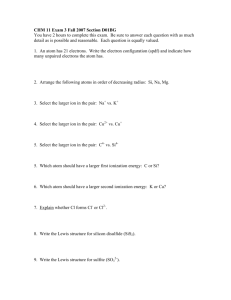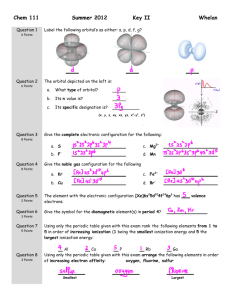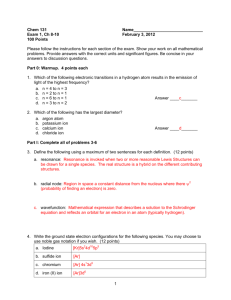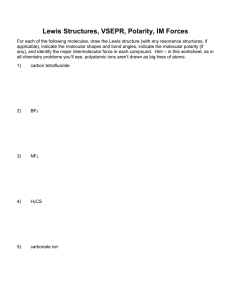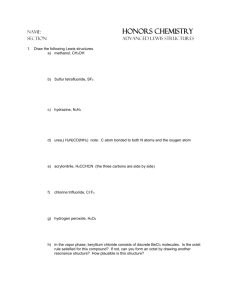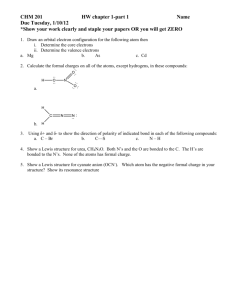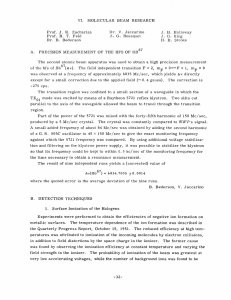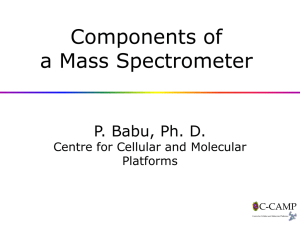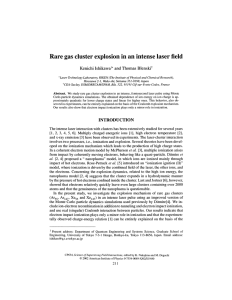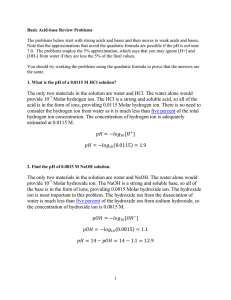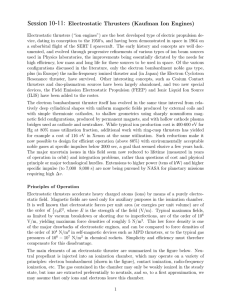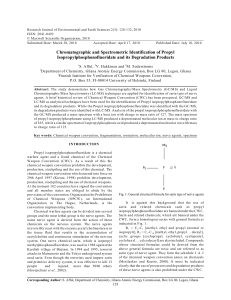Please follow the instructions for each section of the exam.... problems. Provide answers with the correct units and significant figures.... Chem
advertisement
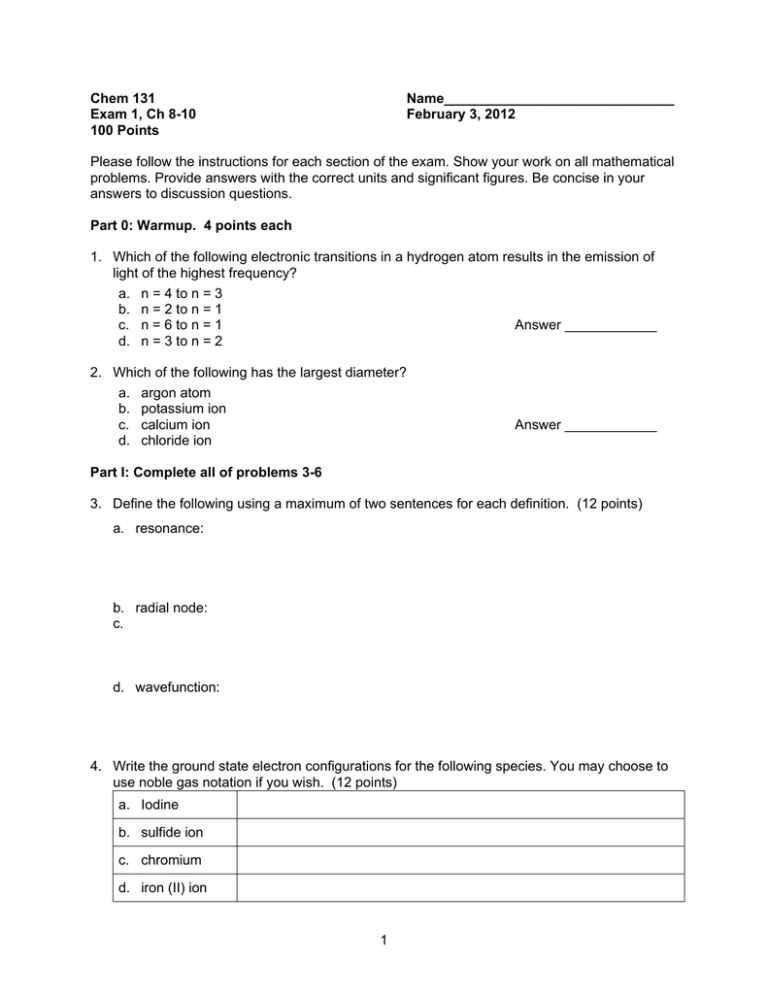
Chem 131 Exam 1, Ch 8-10 100 Points Name______________________________ February 3, 2012 Please follow the instructions for each section of the exam. Show your work on all mathematical problems. Provide answers with the correct units and significant figures. Be concise in your answers to discussion questions. Part 0: Warmup. 4 points each 1. Which of the following electronic transitions in a hydrogen atom results in the emission of light of the highest frequency? a. n = 4 to n = 3 b. n = 2 to n = 1 c. n = 6 to n = 1 Answer ____________ d. n = 3 to n = 2 2. Which of the following has the largest diameter? a. argon atom b. potassium ion c. calcium ion d. chloride ion Answer ____________ Part I: Complete all of problems 3-6 3. Define the following using a maximum of two sentences for each definition. (12 points) a. resonance: b. radial node: c. d. wavefunction: 4. Write the ground state electron configurations for the following species. You may choose to use noble gas notation if you wish. (12 points) a. Iodine b. sulfide ion c. chromium d. iron (II) ion 1 5. Complete the table for two (2) of the species below: (12 points) Lewis Structure (indicate resonance if necessary) Species Electron Pair Geometry Molecular Geometry Polar Molecule? (yes/no) NH3 ClF3 SO2 6. Below are the Lewis structures for two compounds. For each compound, name the molecular geometry and provide a three dimensional sketch of the compound. Indicate approximate bond angles (12 points) a. H2S .. H S .. H b. IF5 .. .... .. . F F ..... .... . F .. I F .. . .. .. F .. 2 7. Consider the general trends in second ionization energy, as shown in the figure to the right. The second ionization energy is for the reaction: M+(g) → M2+(g) + e- Second Ionization Energy (kJ/mol) Part II. Answer three (3) of problems 7-10. Clearly mark the problem you do not want graded. 15 points each. 8000 Li 7000 6000 5000 Na 4000 3000 2000 Be 1000 Mg 0 2 4 6 8 10 12 14 Atomic Number a. Why are the second ionization energies of the group two atoms (Li-Ne) larger than those of the group three atoms (Na-Ar)? b. Why is there a large decrease from Li to Be and then a general increase as you move across the group to Ne? 3 16 18 .. .. O N .. .. H C H .. O 8. Organic compounds containing nitro groups (-NO2) often possess very explosive characteristics. Nitromethane (CH3NO2) is the simplest of these nitrated organic compounds. It undergoes combustion by the following reaction 2CH3NO2(g) + O2(g) 2CO2(g) + 2H2O(g) + N2(g) H The Lewis structure of nitromethane is shown at the right. Using the table of bond dissociation energies on the last page of the exam, determine the Ho for this reaction. 4 9. The Lewis structure for the thiocyanate ion (a polyatomic anion comprised of one atom each of C, N, and S) could be drawn in several ways, three of which are shown below. Which of these structures is more likely to be representative of the real structure of thiocyanate? Explain your reasoning. .. .. C S N .. .. OR .. .. S C N .. .. 5 OR .. .. N S C .. .. 10. Consider the following diagrams of the same orbital. Which orbital do the pictures represent? Provide the values for n, l, and ml for the orbital and justify your reasoning. 6 Possibly Useful Information h = 6.63 x 10-34 Js c = 3.00 x 108 m/s RH = 2.179 x 10-18 J/atom E = h = c E•(mv) > h H = E E 7 RH n2 1 1 E R H 2 2 n final n initial
